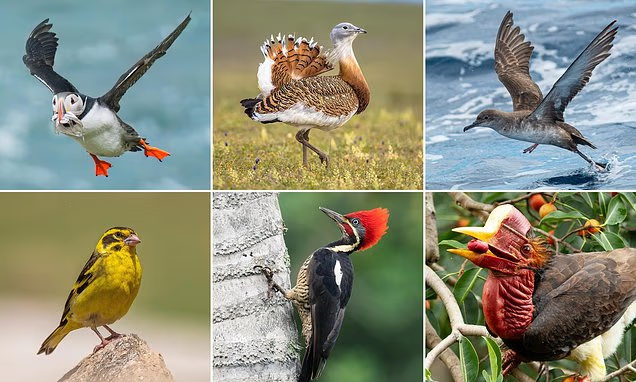
Over 500 bird species could go extinct in 100 yrs: Study
text_fieldsNew Delhi: More than 500 bird species could vanish from the planet within the next 100 years due to climate change, habitat loss, and other human-induced threats, according to a new study published in the journal 'Nature Ecology and Evolution'.
The research, conducted by scientists at the University of Reading in the United Kingdom, reveals that the projected number of extinctions is three times higher than all recorded bird extinctions since the year 1500 CE. The study warns that such large-scale loss of avian life could significantly reduce the diversity of bird shapes and sizes globally, with serious consequences for ecosystems that rely on these unique species.
Among the most vulnerable birds identified are the bare-necked umbrellabird, the helmeted hornbill, and the yellow-bellied sunbird-asity. These species, which play crucial roles in maintaining ecological balance, face extreme risk due to ongoing environmental degradation.
Lead author Kerry Stewart from the University of Reading stated that even if all human-driven threats such as hunting, habitat destruction, and climate change, were eliminated, approximately 250 bird species would still remain on the brink of extinction. “Many birds are already so threatened that reducing human impacts alone won't save them,” Stewart said. “These species need special recovery programmes, like breeding projects and habitat restoration, to survive.”
The team assessed nearly 10,000 bird species using data from the International Union for Conservation of Nature (IUCN) Red List. By analysing the specific threats each species faces, the researchers were able to predict extinction risks and identify which birds are most at risk.
The findings showed that large-bodied birds are more susceptible to hunting and climate change, while species with broad wings are particularly vulnerable to habitat loss. The researchers emphasised that without immediate and targeted conservation measures, many of these birds will not survive the coming decades.
The study also highlights the importance of preserving ecological diversity. According to the authors, prioritising conservation efforts for just 100 of the most unusual and threatened bird species could safeguard up to 68 per cent of the global variety in bird morphology. This, in turn, would help sustain healthy ecosystems.
Senior author Professor Manuela Gonzalez-Suarez stressed the urgency of complementing traditional conservation efforts with focused interventions. “Stopping the destruction of habitats would save most birds overall. However, reducing hunting and preventing accidental deaths would save birds with more unusual features, which are especially important for ecosystem health,” she said.
The researchers concluded that beyond merely halting destructive human activities, comprehensive recovery programmes—such as captive breeding and large-scale habitat restoration—are essential to prevent a potential avian extinction crisis in the next century.
With IANS inputs
























